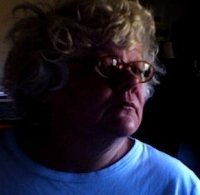
Helen Chappell is a freelance writer, novelist, and teacher. She is the author of nearly 40 books, including mainstream fiction, non-fiction, Regency romances, mysteries and regional fiction. For nearly a decade, she was a columnist for the Op-Ed page of the Baltimore Sun. Her work has appeared in the Washington Post and many regional magazines, as well as Public Radio.
She says the greatest benefit of working with a major publishing house was working closely with an editor, often over the course of a number of books, and developing a close relationship with the publishing house. “It wasn’t a perfect system, but it worked. Things started to fall apart when giant companies like Time Warner and Bertelsmann started buying up publishing houses, firing people, hiring teenage editors and looking only at the bottom line. Any pretense that publishing was the gentleman’s game it had been in the days of Max Perkins was long gone. These days, if you don’t make an unrealistic number of sales, without any support from the public relations people, you’re out. A decade ago, Delacorte simply fired everyone who was a mid list writer or below. Bang. Over and out.”
Helen says the big imprints smelled the winds of change about 10 years ago, they started adding a clause that gave them control of all electronic media or media as yet undiscovered. She adds, “I think they look down on self publication to this day. Although there are whispers in dark alleys that they’ve been known to buy dead tree rights to successful epublished books.”
Helen says she hears that even big time writers like Stephen King are working without agents. “Of course, a bestseller can afford to hire a publicist. But unless you’re a mega star, you’ve always pretty much been in charge of your own publicity. If you were lucky, they’d send galleys to PW and places like that, and if you were triple lucky, you might get a starred review. But in terms of setting up appearances, readings and etc., it was pretty much up to me. I maintained a media list of bookstores, radio, TV and etc within driving distance, and made sure they knew I was available. Media whoredom was both fun and exhausting. And the miles could add up, but if you sold a few books, and met people who enjoyed reading your work, it was worth it.”
Pitfalls await every author and Helen particularly cautions, “Beware of fraudulent agents, especially those who want to charge you a fee to read your ms. then never seem to get you published. It’s an old scam, but it’s still out there. Also, be leery of the vanity press industry. All they’ll do is print your book—no editing, no distribution, no tech support. Unless you want to hand sell every book, drive to every venue, schedule your own accounting, etc. You can end up with a garage full of unsold books.”
Her advice to new or aspiring writers? “If you must write, write. Write, write write. Follow Jane Austen’s advice and write about what you know, even if you’re writing science fiction or fantasy. There has to be some basis in logic.”
Helen reminds new and aspiring authors not to be afraid of the second draft. “When you finish, put the ms, aside for a while and come back to it. A fresh eye can help you improve it. Don’t get stuck on the first sentence. Just write it and get on with the work. If you get stuck, have some unexpected activity, action or character enter the scene to create excitement and change the vibe. The work itself should be the goal. Don’t put huge expectations on an instant bestseller and a Hollywood contract. Just write and write and write.”
The “culture shock” Helen might have experienced in going independent was mitigated because her first indie ventures have been with someone she’s known for a long time. In Helen’s long and successful career, she says she has proven herself to herself. She now sees herself more or less at the end of her book writing career. “These days, I just write essays for a small local magazine. But that elusive book I have yet to plot is always lurking in the back of my mind.”

Some fascinating insights. Thank you.
I think she’s exactly right — when the big conglomerates started buying up publishing houses, they expected to get big returns on their investment, and that meant publishers had to begin “investing” in authors who already have a brand name. A similar thing happened in the radio business. As soon as big companies started buying up stations, they sucked all the fun out of the business in pursuit of the almighty dollar. Sad.
Thanks for the insights!